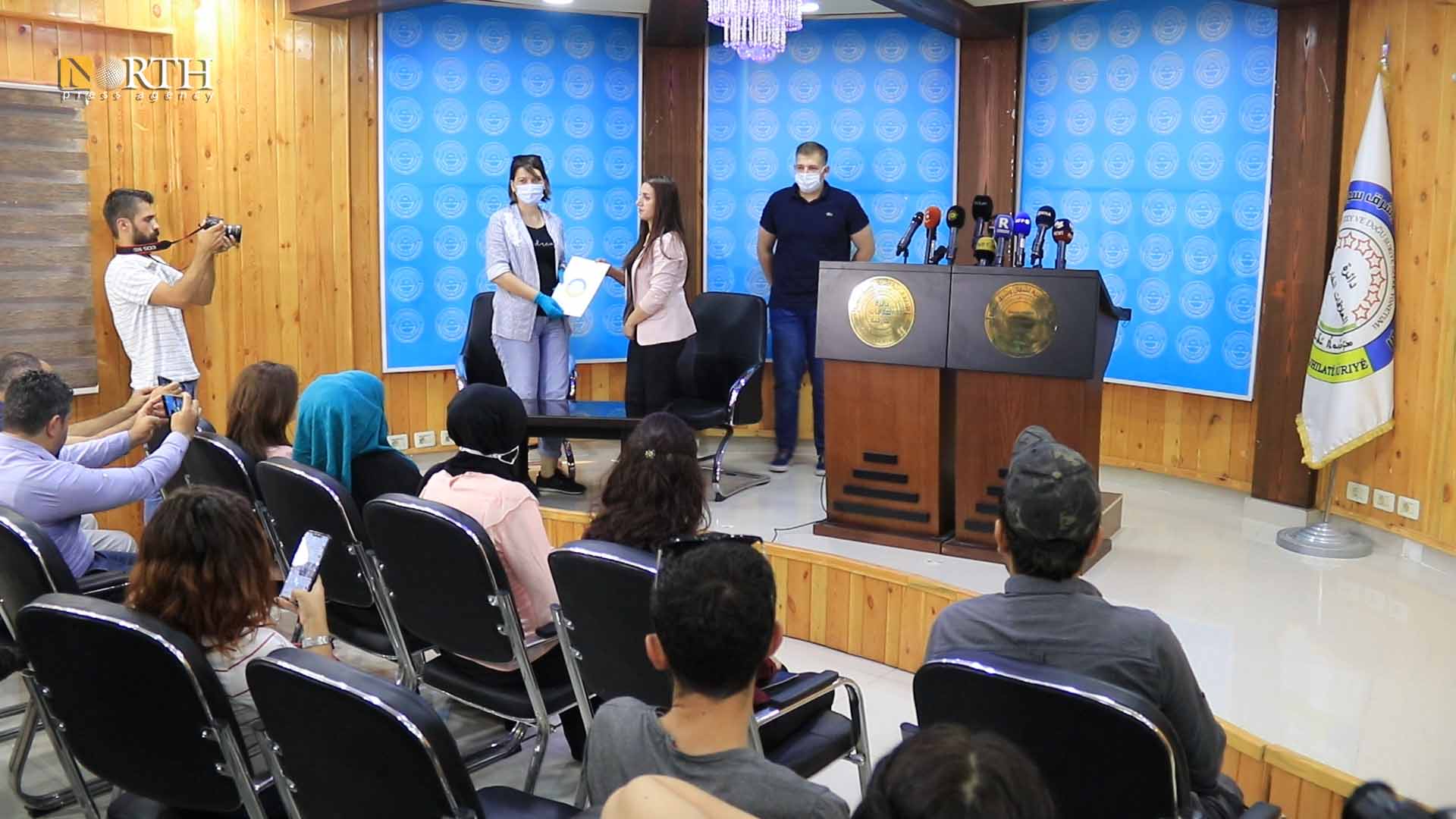Syria’s AANES hands orphaned ISIS children to Russia
QAMISHLI, Syria (North Press) – On Saturday, the Autonomous Administration of North and East Syria (AANES) repatriated the tenth batch of orphan children of the Islamic State (ISIS) to an official Russian delegation in Qamishli.
The Russian delegation was headed by the assistant of the Children’s Rights Commissioner for the President of the Russian Federation, who visited the Foreign Relations Department building where they met with officials.
The assistant of the Children’s Rights Commissioner for the President of the Russian Federation signed the children’s handover documents with the co-chair of the Foreign Relations Department Abir Iliya, in front of journalists’ lenses.
Both officials raised the document, which bore the AANES’ symbol.
In a press conference, an AANES official said that they handed 20 orphaned children of ISIS to Russia.
The number of Russian children whom AANES has allowed Russia to repatriate has reached 205, all repatriated in ten batches.
In a brief speech, the Russian official thanked “everyone who helped in this humanitarian mission,” and indicated that they would continue the work.
In May, Russia called on the international community for rescuing the lives of tens of thousands of children of ISIS in Hawl Camp, east Hasakah, northeast Syria.
“The solution of the dilemma of those children is, first, to return them to their homelands, “because their staying paves the way for the formation of a new radical generation. Second, to provide support to establish the rehabilitation centers,” co-chair of the Foreign Relations Department in AANES Abdulkarim Omar said.
Many countries refuse the repatriation of their nationals from Hawl Camp without revealing any reasons.
Late in June, Syrian Democratic Forces (SDF) Commander-in-Chief Mazloum Abdi addressed a speech to the meeting of US-led Global Coalition to Defeat ISIS that was held on the sidelines of the G7 meeting in Rome.
Additionally, Abdi called on the US-led Global Coalition to repatriate those people to their homelands, support education and rehabilitation/de-radicalization programs, and support stability and economic recovery in liberated areas to address the root causes of extremism.

